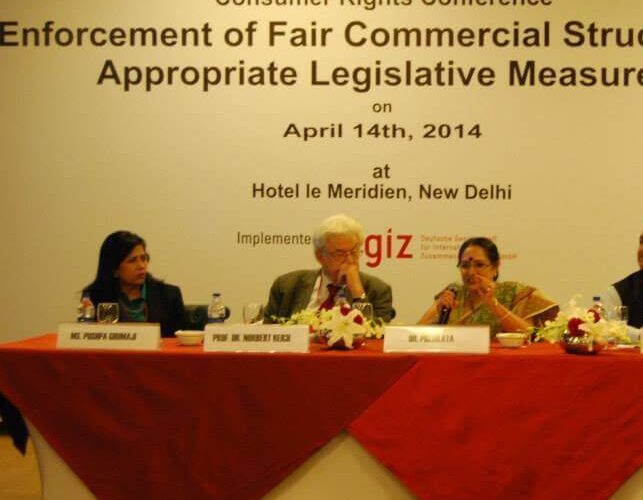Different Central And State Statutes. State Agencies, Authorities, Municipalities, Statutory Boards, provide a wide range of public services against payment of fees. Such services can now be questioned before consumer courts.
Statutory Board provided Service to Workers
Case Title: The Joint Labour Commissioner And … vs Kesar Lal
Decided on 17 March, 2020 SC
Author: D.Y. Chandrachud
Bench: Ajay Rastogi, Dhananjaya Y Chandrachud
Legal Issue
- Whether registered workers under the Building and other Construction Workers (Regulation of Employment and Conditions of Service) Act, 1996 (the "1996 Act") were consumers under Section 2(1)(d) of the CPA
- Whether the welfare boards set up under the 1996 Act were indeed
providing any service to the registered workers against consideration, a sine qua non for making the welfare boards' services amenable to jurisdiction of the CPA.
The Supreme Court found The registered workers were indeed consumers under the CPA who were being provided services against the constributions made by them which it was held constituted consideration under the CPA.
Provident Fund ,whether service provider
The earliest case is Regional Provident Fund Commissinor v Shiv Kumar Joshi
Judgment dated 14.12.99 SC ,
- Sagir Ahmed and R.P. Sethi JJ. held
“An employee was a consumer when he participated ina Statutory Provident Fund.”
FACTS
- The employee filed a complaint at District Fora against delay in release of his provident fund. The District Forum awarded 18% interest in delayed payment and INR 1000 as costs.
- An appeal filed in the State Commission was dismissed.
- After dismissal of the 2nd appeal in National Commission a final appeal was filed in Supreme Court.
- The Supreme Court held that the employee was a consumer and there had been a deficiency in service of delay in release of provident fund of the employee.
Judicial decision making sovereign functions do not come under
Consumer Protection Act :SC
- The sovereign functions like judicial decision making,imposition of taxes,policing etc. are exempted from the ambit of the Act. Tax and cess are a form of exactions which are common burden or for specific purpose respectively and does not involve the element of quid pro quo and therefore, are not amenable to the jurisdiction of Consumer Fora
- The welfare activities through economic adventure undertaken by the Government or Statutory Authorities are within the ambit of the Act and evenin departments discharging sovereign functions, if there are units/wings which are providing services/ supply goods for a consideration and they are severable, they can be considered as to come within the ambit of the Act.

